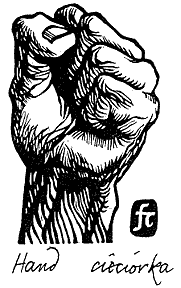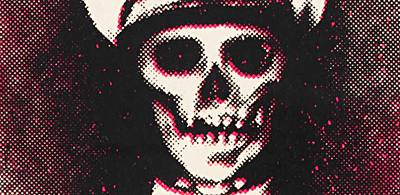Frank Cieciorka: RIP

On November 24, 2008, artist Frank Cieciorka (che-CHOR-ka) died from emphysema at the age of 69.
Starting in the 1980s he began to be recognized for his watercolor paintings of northern California landscapes, but it would be one of his early graphic art designs that assured him a place in history.
The iconic clenched fist has long been a symbol of the international left, its usage going back at least until 1917. But the symbol was transformed and revitalized in 1965 by Cieciorka, whose rendition of the pictogram struck a cord with a new generation of activists involved in the civil rights and antiwar struggles.
A New Yorker, Cieciorka came to California in 1957 to attend the arts program at San Jose State College. Upon graduation in 1964 he became a volunteer in Freedom Summer, the major civil rights campaign launched in ’64 to help African Americans register to vote in Mississippi.
That same year the Ku Klux Klan kidnapped, tortured, and murdered three Freedom Summer volunteers – James Chaney, Michael Schwerner, and Andrew Goodman. From 1964-65 Cieciorka also served as a field secretary in Mississippi and Arkansas for the Student Nonviolent Coordinating Committee (SNCC – pronounced “snick”), one of the primary civil rights organizations of the day.

Cieciorka returned to the San Francisco Bay area in 1965, and created a woodcut print inspired by his experiences as a civil rights activist in the deep South.
His image, simply titled Hand, made its way onto posters and flyers, but according to the artist, “It wasn’t until we made it into a button and tossed thousands of them into crowds at rallies and demonstrations that it really became popular.”
I wore one of Cieciorka’s buttons as a sixteen-year-old, and I still regard his woodcut print as one of the most striking symbols to have come out of the turbulent 60s.



